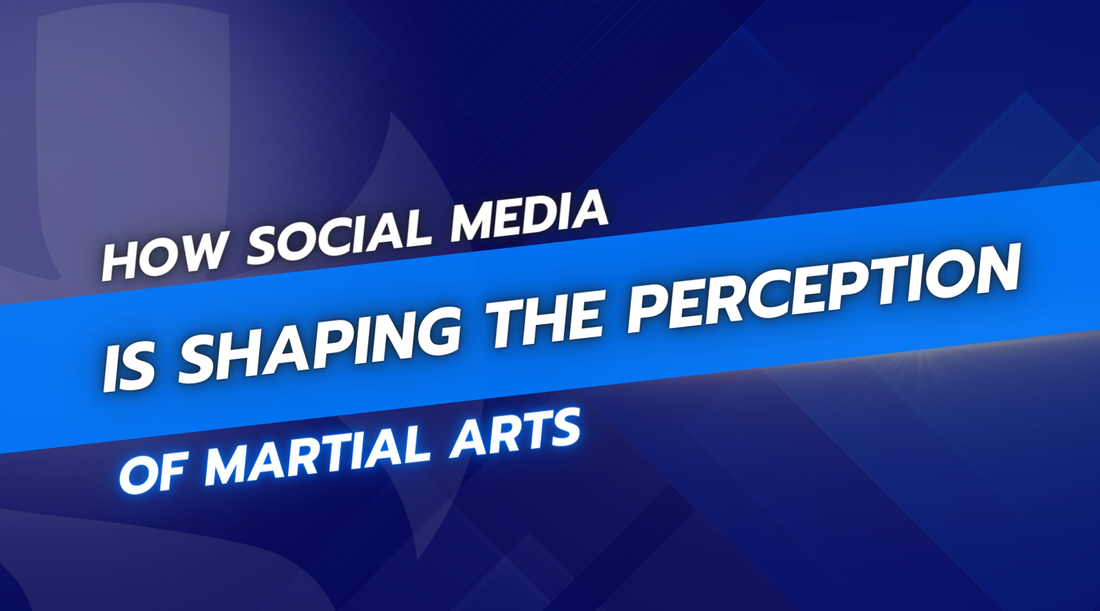
How Social Media Is Shaping the Perception of Martial Arts
Share
The rise of social media has transformed countless industries, including fitness, fashion, and entertainment. Martial arts, with its deep-rooted traditions and rich history, is no exception. As we dive into the digital age, social media plays a pivotal role in shaping how martial arts are perceived, practiced, and promoted worldwide.
The Historical Perception of Martial Arts
Traditionally, martial arts were often shrouded in mystery and revered for their discipline and philosophy. Pop culture, through movies like Bruce Lee’s "Enter the Dragon" and TV shows like "Kung Fu," popularized martial arts but often romanticized or exaggerated aspects of the practice. Before the advent of social media, perceptions were largely influenced by these cinematic portrayals.
The Advent of Social Media
Social media has drastically changed how information is disseminated and consumed. Platforms like Facebook, Instagram, YouTube, and TikTok have become powerful tools for content sharing, allowing martial artists to showcase their skills, share training tips, and connect with a global audience. This shift from traditional to digital media has democratized the dissemination of martial arts knowledge.
The Role of Influencers in Martial Arts
Martial arts influencers have emerged as key figures in promoting and shaping the perception of martial arts. Influencers like Michelle Waterson and Rener Gracie use their platforms to share techniques, promote events, and offer personal insights into their training regimes. Their vast followings help to inspire and educate millions of fans, breaking down geographical barriers.
Showcasing Techniques and Training
Social media platforms are rich with content featuring martial arts techniques and training sessions. YouTube channels offer detailed tutorials, Instagram posts highlight daily training routines, and TikTok showcases quick tips and tricks. Virtual dojos and online training sessions have become more prevalent, especially post-pandemic, offering both benefits like accessibility and drawbacks such as the lack of personal instruction.
Martial Arts Communities on Social Media
Online communities and groups dedicated to martial arts have flourished on platforms like Facebook and Reddit. These communities allow practitioners to interact, share knowledge, and support one another regardless of location. This global interaction fosters a sense of belonging and continuous learning, as enthusiasts share experiences and advice.
Promoting Martial Arts Events
Social media is an essential tool for promoting martial arts events. Platforms like Instagram and Facebook allow event organizers to reach a broad audience quickly and effectively. Live streaming of tournaments and exhibitions on YouTube and Instagram Live has made it possible for fans worldwide to witness events in real-time, increasing accessibility and engagement.
Branding and Sponsorship Opportunities
For martial artists, personal branding has become crucial. Social media offers a platform to showcase personal achievements, engage with fans, and attract sponsorships. Athletes like Conor McGregor have built powerful personal brands, leveraging social media to secure lucrative endorsement deals and business opportunities.
The Impact on Martial Arts Schools
Martial arts schools benefit significantly from social media marketing. By showcasing student achievements, sharing training clips, and promoting events, schools attract new students and maintain engagement with the existing community. Testimonials and success stories shared on social media also serve as powerful tools for reputation building and trust.
Changing Stereotypes and Misconceptions
Social media has the power to break down cultural barriers and dispel myths surrounding martial arts. By showcasing diverse practitioners and inclusive environments, content creators can promote a more accurate and inclusive image of martial arts. This shift helps in combating stereotypes and encouraging a broader demographic to engage with martial arts.
Highlighting Lesser-Known Martial Arts
Social media also provides a platform for lesser-known martial arts to gain recognition. Styles like Silat, Krav Maga, and Capoeira have seen a surge in interest due to exposure on platforms like YouTube and Instagram. Practitioners and enthusiasts share content that educates and intrigues, leading to a broader appreciation of these unique forms.
Challenges and Controversies
Despite its many benefits, social media also presents challenges. The spread of misinformation, online disputes, and the presence of "keyboard warriors" can detract from the positive aspects. Balancing authenticity with entertainment remains a critical challenge for martial arts content creators.
Future Trends in Martial Arts and Social Media
The future of martial arts and social media is intertwined with technological advancements. Virtual reality (VR) and augmented reality (AR) are poised to revolutionize training and engagement. Predicting future trends, it’s likely that VR training environments and AR-enhanced live events will become more prevalent, offering immersive experiences for practitioners and fans alike.
Final Thoughts
Social media has undeniably transformed the landscape of martial arts. From breaking down barriers and promoting inclusivity to providing platforms for education and engagement, the digital age offers both opportunities and challenges. As technology continues to evolve, so too will the ways in which martial arts are practiced and perceived. The fusion of tradition with modern technology heralds an exciting future for martial arts enthusiasts worldwide.
